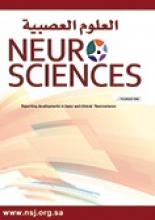Abstract
OBJECTIVE: To evaluate the health related quality of life (HRQoL) of totally independent ambulatory neuromuscular disease (NMD) patients in comparison with age matched healthy control subjects, and to assess associations between socio demographic variables and HRQoL in totally independent NMD patients.
METHODS: Ninety-nine adult patients with a diagnosis of NMD referred to the Physical Therapy Department of the Health Sciences Faculty of Hacettepe University, Ankara, Turkey between 2007 and 2009 were included in the study. The Functional Independence Measurement and the Nottingham Health Profile (NHP) were the main outcomes to assess independence level in activities of daily living and quality of life.
RESULTS: The HRQoL score as measured by NHP was high (worse) in patients than healthy controls, and the difference between the 2 groups was significant for energy, physical mobility, and total score. Employed NMD patients scored significantly lower (better) than those unemployed in the majority of NHP domains. The genders and duration of illness displayed no significant difference in all dimension scores.
CONCLUSION: All NMD patients had a poorer HRQoL than with healthy subjects with respect to energy, physical mobility dimensions, and total score. Furthermore, occupation was found to be a main factor that affects HRQoL in adult ambulatory NMD patients.
- Copyright: © Neurosciences
Neurosciences is an Open Access journal and articles published are distributed under the terms of the Creative Commons Attribution-NonCommercial License (CC BY-NC). Readers may copy, distribute, and display the work for non-commercial purposes with the proper citation of the original work.






